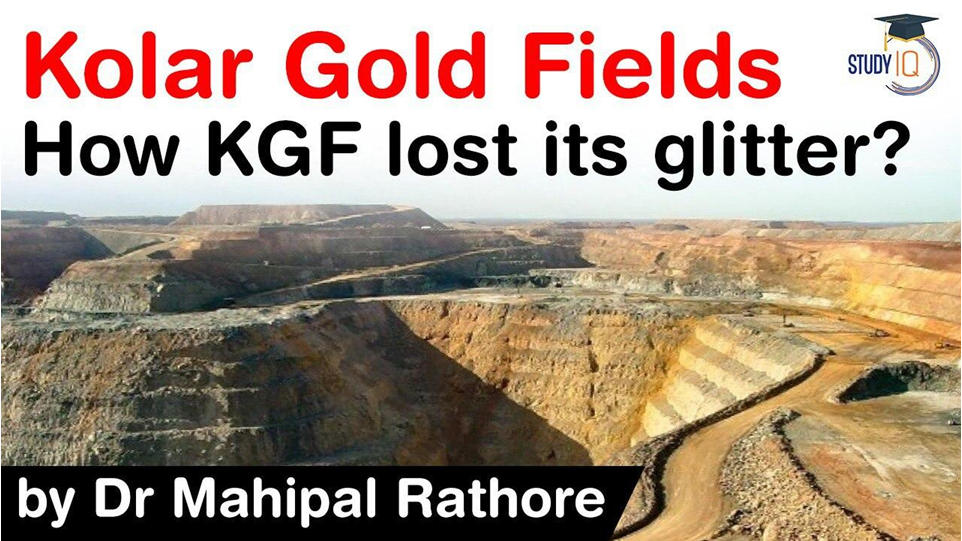Table of Contents

The Mining start up
- In 1875, Michael Fitzgerald Lavelle, a retired solider from the British Army, started Gold mining operations at Kolar, 100 km from Bangalaore (now Bengaluru)
- After few years, the mining operations were taken over by John Taylor and sons. The company brought state of the art mining engineering
- By 1902, KGF produced more than 95% of India’s gold
Mini England
- One of India’s first power-generation units was built in 1889 to support mining operations.
- Kolar had a uninterrupted power supply before any city in India.
- British officers residences, hospitals, club houses, golf course – all modern amenities were built
- The mine workers though, lived in coolie lanes.

After Independence
- British company mined till 1956
- 1972 – Government took control under – Bharat Gold Mines Limited (BGML), a public sector undertaking
- The mine complex hosted some particle physics experiments between the 1960s and 1992.
Pyroclastic Rocks

Why was the mine Shut down?
- The mine closed on 28 February 2001
- The KGM yielded 47g of gold per tonne of ore during 1881-1890.
- However, during 1990’s the returns were 03g/tonne due to the depletion of the high grade ore reserve and increase in production costs.
- Scientific mine closure procedures NOT followed
From Mini-England to Hell
- 260,000 people still live in the Kolar Gold Fields.
- When the mine was operational, the area didn’t experience any power cuts and water shortage.
- After the gold has finished the area has lost its glitter too as there is neither proper electricity supply nor drinking water.
- The labourers who used to work in these mines live in poverty without any financial and health aid from the government.
- Residents live in shanties smaller than 100 square feet in over 400 colonies.
- Access to proper toilet facilities and there are open drains in the colonies for wastewater which ends up triggering a host of communicable diseases.
- Socio Economic Issues –
- Lack of work or employment opportunities
- People travel to cities nearby like Bengaluru, which is 100 km away, for work. (3 to 4 hours of commute)
Health and Environment
- Mine wastes in the form of rock fragments and mill tailings have been stacked in huge piles and heaps in KGF, occupying about 15-20% of the lease area.
What does this mountain of waste contain?
- Cyanide , silica , copper sulphate and sodium silicate.
- Cyanide hills rise to a height of 40 metres.
- Contamination of GROUND WATER
- Rain water brings the toxic waste into streams and farms – makes land infertile.
- Many former employees of the Kolar Gold Fields suffer from silicosis and lung cancer
- The dust from cyanide mounds causes skin allergies and respiratory problems in the area.
Unplanned closure
- Unplanned closure of mines is when a company closes its mine without any prior intimation and leaves the environment, waste without any consideration to reduce the further effect.
- This will leave the ecology of the place disturbed and pollutes the surrounding even after shutting down of mine.
Tourism
- Tourism potential of the place?
- Mining shafts that could have provided a glimpse of life 10,000 feet under have not been revived for tourists
- British era bungalows within large estates can be converted into homestays.

Latest Burning Issues | Free PDF






























 WhatsApp
WhatsApp